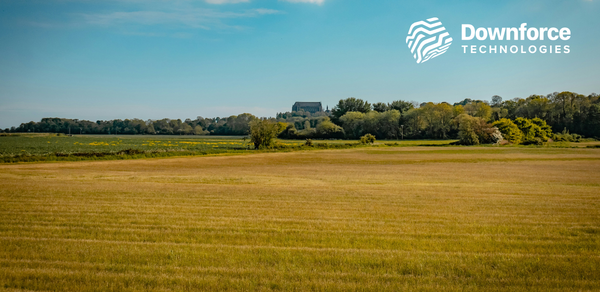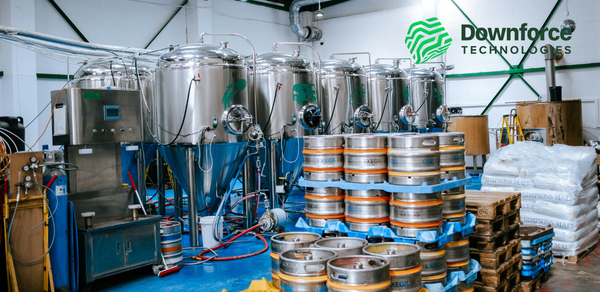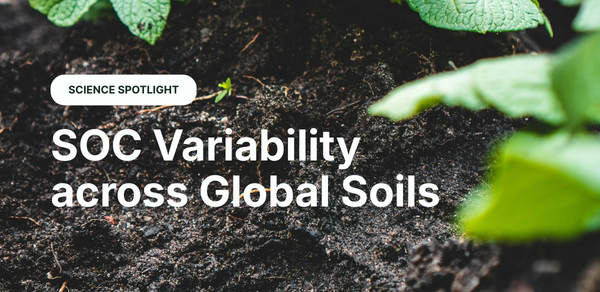From the food we eat to the clothes we wear, everything we rely on comes from the soil.
Landowners and farmers are facing intricate challenges as they strive to unlock the potential of their land and transition to more sustainable, regenerative farming practices. Simultaneously, retailers and brands are grappling with the environmental impacts of food and fashion production and the pursuit of their Net-Zero ambitions.
This complex situation requires the combined efforts of creativity, intelligence, collaboration and a touch of optimism! This is where Downforce Technologies excels.
Downforce Technologies specialises in providing science-led, nature-based intelligence into soil health and soil organic carbon (SOC). Our comprehensive solutions empower stakeholders with the knowledge and insights necessary to make informed decisions and drive sustainable practices forward.
Intelligent Solutions for Landowners and Farmers
Healthy soil is a cornerstone in the production of high-quality food and fibres, reducing reliance on synthetic fertilisers and fostering sustainable land use practices. With the majority of food and fashion brands reliant on agriculture for sourcing raw materials, prioritising soil health is essential.
Addressing SOC Variability for Enhanced Land Management
Soil organic carbon is the world's largest carbon sink, and increasing it at the farm level is vital for achieving sustainability goals. However, the inherent variability of SOC, even within a single field, can present challenges. Seasonal fluctuations, diverse weather conditions, soil types, landscape positions, cropping history and management practices all contribute to this dynamic variability.
At Downforce, we recognise the intricacies and ever-changing nature of these fluctuations, and we equip you with precise, high-resolution data to devise site-specific strategies for optimising carbon levels. Our science-led, data-driven approach ensures effective management of SOC, even in regions with spatial non-uniformity.
Traditional farming practices, focussed on productivity, have had their drawbacks, contributing to deforestation, greenhouse gas emissions, soil degradation, and biodiversity loss. The future of agriculture lies in finding a balance that embraces sustainability, productivity and profitability. It's about leveraging technology and adopting forward-thinking practices that propel us toward a more sustainable and resilient future.
Boosting carbon levels on your farmland can lead to numerous advantages that positively impact your farming operations:
● Maximise Yields & Crop Productivity: Optimal SOC levels improve soil fertility, nutrient availability and water retention, resulting in increased yields and enhanced crop productivity.
● Enhance Soil Structure & Erosion Resistance: SOC plays a vital role in building and maintaining soil structure, reducing erosion, runoff and enhancing soil stability.
● Increase Soil Fertility: Higher carbon levels in the soil enhance its fertility by improving nutrient availability and promoting microbial activity. This translates to improved crop yields and overall productivity.
● Improve Water Retention & Drought Resilience: Soils with higher carbon content have superior water-holding capacity, enabling them to retain moisture for longer periods. This is particularly beneficial during droughts, as it helps plants withstand dry conditions and reduces irrigation needs.
● Reduce Soil Erosion: Carbon-rich soils are more resistant to erosion, by boosting carbon, you can help protect valuable topsoil.
● Achieve Cost Savings: Practices aimed at increasing carbon, such as cover cropping and conservation tillage, reduce the need for synthetic fertilisers and other inputs. This not only saves money but also promotes sustainable and eco-friendly farming practices.
● Promote Long-Term Soil Health: Investing in carbon enhancement measures promotes long-term soil health. By building organic matter and improving soil structure, you create a sustainable foundation for your farming operations, ensuring the productivity and viability of your land for future generations.
Verified Data for Sustainable Impact
Armed with insights from Downforce Technologies, regenerative agricultural practices grounded in evidence can be implemented, soil carbon sequestration can be proven, and the impact of sustainability strategies can be measured and modelled.
Our integrated approach enables scalability across multiple sites, counties, or even countries, eliminating a major barrier to measuring natural capital. Aligned to the ISO14064 standard, the intelligence provided by Downforce Technologies allows you to demonstrate adherence to disclosure requirements and access investment-grade data for green finance opportunities.




